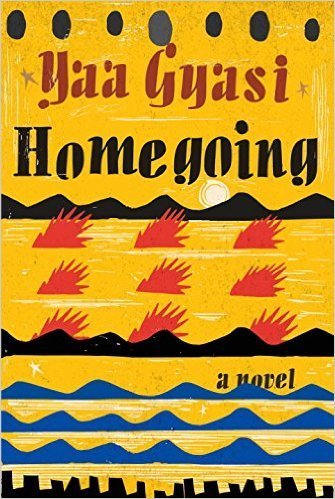Homegoing by Yaa Gyasi
Review of Homegoing by Yaa Gyasi
One of the most incredible part of going into an interdisciplinary graduate program in the humanities for me is how I’ve been able to read a diverse set of texts and books that I never would have known existed unless I was forced to read them for class.
This semester, I was able to take a class called The Traveler, which was about migration studies and the literature produced about traveling around the Atlantic. Of course, we had a specific focus on the Atlantic Slave Trade and the travel narratives and stories that came out of this. One of the books we read was Homegoing.
I had never heard of this book before, but as I cracked open the text to read it for the first time, I was fascinated with what the book had to offer. There’s a really captivating framework in the way that Yaa Gyasi sets this book up—which I’ll get to throughout the review, we can’t get too deep in just the introduction!
But anyways, I’m really grateful to have read this novel, as I think I’ll be returning to it throughout the future.
A generational tale following the ancestors of two sisters: both impacted by the slave trade and colonialism in different ways.
We begin Homegoing with the story of Effia, who is raised by a cruel mother in the village. She does whatever she can in order to get on her mother’s good side, but there are some complicated factors involved. Effia’s family wants her to be married off to the future chief of her village, but her mother tells her to tell no one that she got her period.
Rumors spread around the village, and she is declared barren, forcing Effia to be married off to British merchant and governor instead. Her marriage works out, but when her father dies and she returns to the village, her brother tells her her mother was never her mother, and her real mother was a slave.
We then jump to Esi, who is the daughter of a village chief and and Maame. When a slave is captured, he asks Esi to send a message to her father to inform him what happened to her, but when Esi does so, her village is raided and her parents are killed. But before Esi flees, she learned her mother had another daughter—which is actually Effia.
However, Esi is taken away to be a slave herself, and is then imprisoned in the same castle that Effia’s husband oversees.
The rest of this chapter is where we start digging deeper into the more horrific things about slavery, as Esi is raped in this chapter, and the castle in which she is held in really shouldn’t be fit for humans in the dungeons.
My professor, in class, showed us pictures of the castles and dungeons the slaves were held in, and those conditions would be absolutely terrifying if you were captured and held there. Esi is sent to the Americas, where she will be a slave.
The narratives start diverging at this point. Each chapter belongs to a different member of the two women’s families.
We have Effia’s son next, who is mixed race and discovers he’s bisexual with a local boy but ends up marrying an Asante girl instead. Esi’s daughter is born a slave and is seprated from her mother. She marries a slave on the plantation, and has a kid, who is able to escape to Baltimore and live life as a freed man.
I won’t go into full details of each generation, but we essentially go through the years living life through the eyes of the kids of each of these characters.
We follow them up until the modern day, when the two ancestors, Marcus and Marjorie, meet as graduate students at Stanford University. They don’t know they have a common ancestor, but they choose to go to Ghana to see where Marcus’ ancestor, Esi, once was hauled through the dungeon and onto the slave ships.
Together, they look at Majorie’s stone, while we know that Esi’s is buried in the depths of the dungeon, as she was never able to retrieve it.
Overall Thoughts
Like I said, this was such a fascinating book to read. I think that there is so much complexity to books like these, especially as each chapter is a different time period and reads like a short story.
If they weren’t connected by the same ancestor, it wouldn’t show the themes as much as Gyasi would have liked probably, but this was such a brilliant idea to tie them together.
Two sisters who’ve never met, but their ancestors, one day after all of this generational trauma, come together to return home and be free. Lots of poetry in that storyline, that’s for sure.
Follow me below on Instagram and Goodreads for more.


![Jeju-do (제주도) is one of those places that reminds you of how stunning the world is
[7.12.2024 부터 7.14.2024 까지]](https://images.squarespace-cdn.com/content/v1/5ea1f794501b7153b29e7cd7/1721033601522-554E76HR01JUHDWZBJ1I/image-asset.jpeg)









